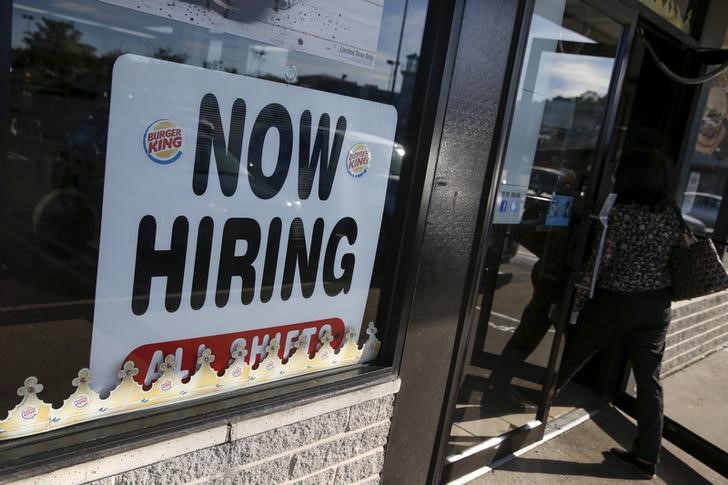By Yasin Ebrahim
Investing.com – A goldilocks jobs report will be needed to fight off stagflation fears, and keep the Federal Reserve on a cautious rate hike path at a time when the Russia-Ukraine conflict has pushed inflation expectations to record levels.
The Labor Department will release its jobs report for February on Friday, with economists estimating that about 400,000 jobs were created last month, with the unemployment rate expected to creep below 4%.
The monthly jobs report will arrive at a crucial time. Bets on aggressive Fed rate hikes are on the decline. But the prospect of red-hot inflation running even hotter – in the wake of Russia-Ukraine conflict – just as growth is expected to slow has many on the lookout for stagflation.
The five-year breakeven rate on Treasury inflation protected securities – a closely watched gauge of inflation expectations -- jumped to 3.23%, a record high.
The jobs report will need to strike the right balance between optimism and pessimism to avoid tipping the scale.
“This jobs number tomorrow will have to be a pitch perfect,” John Luke Tyner, portfolio manager at Aptus Capital Advisors, said in an interview with Investing.com on Thursday. "If it’s too hot -- 600,000 to 700,000 jobs created, the unemployment rate falling to 3.7% and wage growth rising to about 5.4%, or higher year over year – then the market's is going to take Powell's words that a 50 bips is on the table at later meetings and then maybe even price in 100 bips by July."
Federal Reserve Chairman Jerome Powell said he would back a 25-basis points rate hike at the March meeting, but said that increased rate hikes were on the table if inflation doesn’t subside as expected.
“I could see us in a position where the market then starts to revert back to the pricing of six or seven hikes this year that was taken away because of the Russia-Ukraine conflict,” Tyner added.
The market-implied expectations for Fed rate hikes for 2022 dropped 112 basis points, down from as much as 162 basis points last month, Bloomberg report.
Weak jobs data that meaningfully undershoot expectations will flag economic growth concerns and add “to the stagflation fears that I think spooks the market,” the portfolio manager said.
